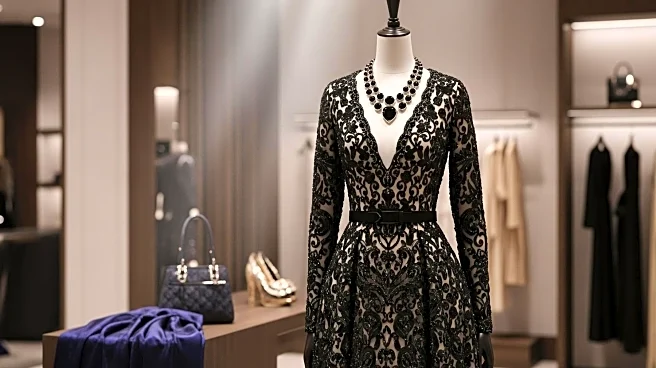What's Happening?
The Trump administration has introduced a new policy imposing a $100,000 fee on H-1B work visa applications, a move that significantly affects the fashion and beauty industries. This fee, announced by President Trump, targets a visa type used to bring highly skilled workers into the U.S., commonly utilized in tech and finance sectors. However, fashion and beauty companies also rely on these visas, with companies like Nike, Gap Inc., and Levi Strauss employing numerous H-1B visa holders. The fee has sparked concern among smaller companies that may struggle to afford it, potentially leading to job offer withdrawals and increased difficulty in hiring international talent.
Why It's Important?
The introduction of this fee could have substantial implications for the U.S. fashion industry, which increasingly relies on international talent for roles in technology and design. Companies may face challenges in maintaining their workforce, potentially leading to a talent shortage in critical areas. This policy reflects broader anti-immigration sentiments and could deter skilled workers from seeking opportunities in the U.S., impacting innovation and competitiveness. Smaller companies, in particular, may find it difficult to absorb the additional costs, potentially leading to operational disruptions.
What's Next?
Legal challenges to the fee are underway, with groups arguing its unconstitutionality. Companies may explore alternative visa options, such as the O-1 visa for individuals with extraordinary abilities, though these have stricter requirements. The outcome of these legal challenges and the industry's adaptation to the new fee will be closely watched. The policy's impact on the labor market and its potential to influence future immigration policies remain key areas of concern.









